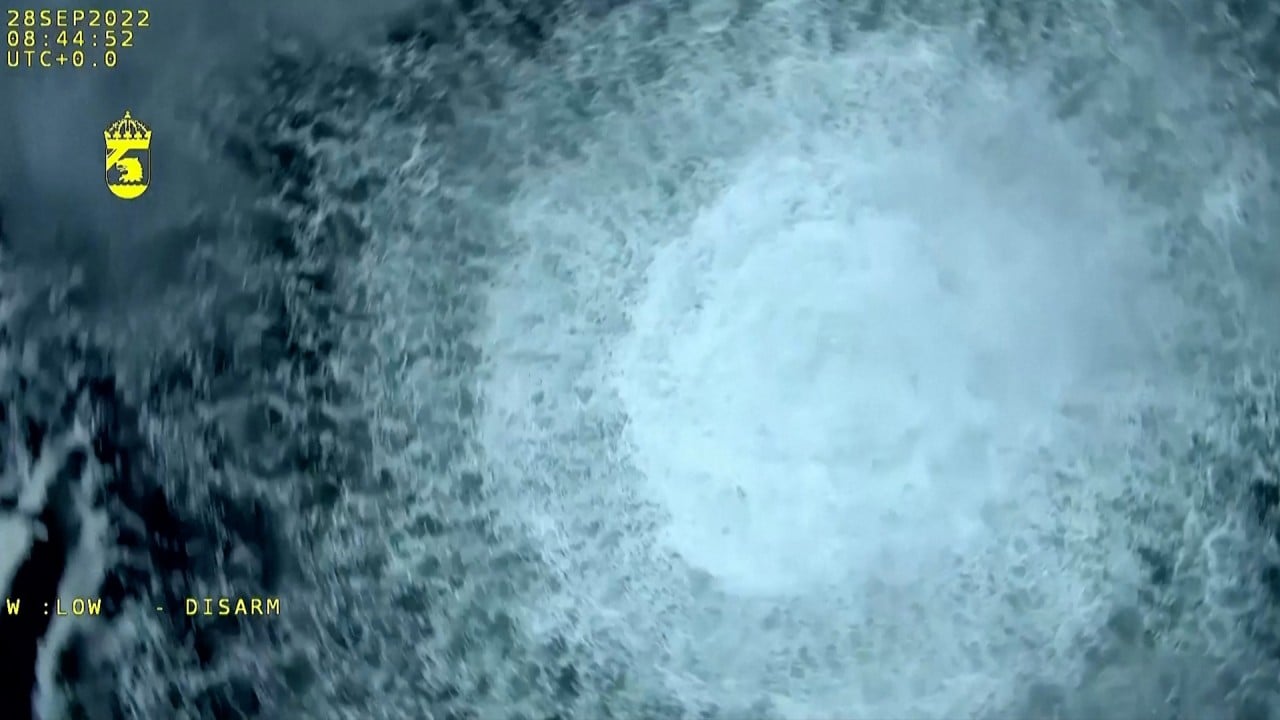
EU suggests joint gas purchase package, US$40 billion for energy poverty
- ‘Instead of outbidding each other, member states and energy companies should leverage their joint purchasing power’
- The bloc also wants to use some funds to support some businesses and jobs, and help vulnerable households
The European Commission wants to use €40 billion (US$39.3 billion) in EU funds to alleviate household and business suffering brought on by high energy bills, it said on Tuesday.
The proposed funds aim to support small and medium-sized business, maintain jobs and “help address energy poverty through support to vulnerable households”, according to the proposal.
The money should be taken from unused resources for regional development in the EU and go towards aid measures in the member states, according to the proposal, part of a series of measures to tackle high prices that was presented in Strasbourg.
The package also includes a framework for joint gas purchases.
EU countries already agreed in March to buy gas together, aiming to improve their market position and achieve lower prices, but little progress has been made since.
“We make joint purchasing in this proposal today operational,” said European Commission President Ursula von der Leyen in a press conference.
“We know that Europe’s energy demand is very large. So, it is logical that, instead of outbidding each other, the member states and the energy companies should leverage their joint purchasing power,” von der Leyen said.
According to the proposal, gas-buying companies hoping for better offers are to bundle their demand in joint tenders via a service provider to be hired by the commission.
Companies would have to pool their demand for 15 per cent of the national gas storage obligations. They could then procure the gas through joint negotiations but are not obliged to follow through with the purchases.
Several EU countries have been calling for a gas price cap in recent weeks, amid soaring energy prices, while others, including Germany and the Netherlands, fear supply security issues.
Von der Leyen has previously opened up to the idea of limiting the price of gas.
Tuesday’s draft bill, however, only includes the option to propose a gas price cap as a last resort.
If needed, the commission is to be allowed to present a “maximum dynamic price” for gas traded at the wholesale trading hub TTF, according to press material. Member states would then have to approve the measure.
The index of the Dutch Title Transfer Facility (TTF) serves as a reference price for many gas transactions across the bloc but has been fluctuating greatly since EU countries started reorganising their gas supplies in light of Russian cuts.
Other trading centres in the EU would be linked to the “corrected” TTF price “via a dynamic price corridor”.
In the coming months, the commission wants to develop a complementary price index for liquefied natural gas (LNG) as an alternative to the TTF gas price index, which has been mainly used for pipeline gas in the past.
In addition, the daily price peaks in short-term gas transactions on wholesale markets are to be reduced through a new mechanism.
Tuesday’s proposals still have to be negotiated and possibly amended by EU member states, but could be adopted as early as November, when EU energy ministers meet again.
EU leaders are due to discuss high energy prices at a summit later this week in Brussels.
Consumers in the EU are facing stark energy price increases after Russian President Vladimir Putin dramatically reduced gas supplies to the bloc, in what is seen as retaliation for the EU’s sanctions and support for Ukraine, which is under invasion by Russia.
In September, the energy costs for consumers were up 40.8 per cent compared with last year, according to the European Commission’s statistical office Eurostat.
Since Russia’s invasion, the European Commission has made several legislative proposals on how to tackle high prices and accelerate the transition to green energy.
A study published on Tuesday found that the EU has been producing more electricity from renewable energy sources than ever before in recent months.
Between March and September, 24 per cent of the EU’s electricity came from solar and wind power, a report released on Tuesday by the think tanks Ember and E3G read.
Compared to the same period last year, the EU increased its electricity production from these two power sources by three percentage points.


